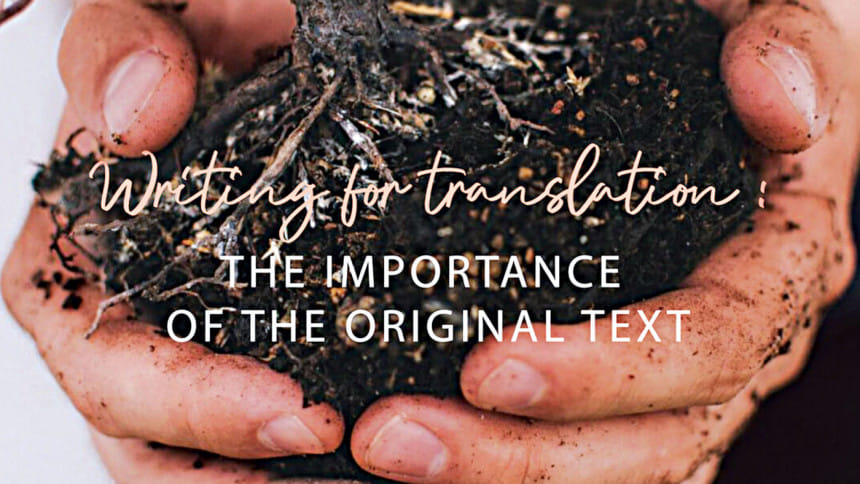Translation, Culture and Politics

A discussion of Translation and its theories often remains circumscribed to a discourse arguing about the issues of authenticity. One of the oft repeated worries being whether the translated piece is able to retain the flavour of the original. Whereas Translation in reality, is a process/act, which is bound to get enmeshed in several conflicts. While at the first level the problem is related to morality and ethics, at an second and a more powerful level, it is an act which can be questioned in relation to hegemony or colonial dominance, when it is a case of transfer from language of under developed or developing countries to the language of a developed country (and this is an issue very pertinent to South Asia, where the focus could be translating texts in vernacular/ native languages to English).
To the first problem –how far is a translated piece equal to the original, Professor Sukanto Chaudhuri has an interesting observation, "… translation is like a woman either beautiful or faithful but not both." Keeping aside the huge controversy that such a remark may generate, I call upon the cogency of the parallel that the simile evokes- that the departure of a translation from the original evokes the compelling suggestion of a threatening subversive force, the infringement of set parameters of possession and authority. Although, this is true that translation by chance, can throttle the potentials of the original text, it might become, an impersonal illimitable continuum of verbal process, threatening to subsume the authorial intention, but it might as well serve the opposite i. e., unleash the hidden forces and create greater possibilities in a new language.
In the second case greater possibilities might be indicated in the extreme sense where, (in the Barthean sense of the term) there is the death of the author and the signifier is set free to search for suitable and alternative signifieds. Ironically, this process of going beyond the authorial intention also makes translation therefore analogous to the Derridean' difference' which means that translation do endlessly defer and extend meanings and implications of the original.
This is more so, because translation involves the collation of not only two creative individuals, but also two languages, cultures, often two communities and countries. It is this radical shift of the context of interpretation that calls upon contesting sites and questions of domination of one language or one culture over the other, apart from the problem of difference already talked about.
Any Translation of a particular text also reflects the cultural politics behind such translation. Say, for example, the translation of Tagore's Gitanjali is expected to supersede the attempts to translate the same author's Ghare Baire for reasons known to all. Sale of the translated versions of Gitanjali, do tip the scales and no one perhaps questions the authenticity of the source from where such translations are done. In such cases, however the problem lies to the extent, texts and signifiers are manipulated to pitch up the sales figures.
Translation, therefore, is never an innocent activity and is often criticized, associated with the practice of cultural and political hegemony which can be traced back to the colonial times why and in what way were certain Indian texts translated by scholars as early as William Jones still remains a matter of speculation. Scholars like Tejaswini Niranjana or Harish Trivedi are vituperative when analyzing the patterns and objectives of translating the cast (read the text) by the west almost echoing a trajectory to be traced to Edward Said's Orientalism.
Translating oriental texts becomes a corporate institution for dealing with the orient dealing with it by making statements about it, ruling over it. Among the numerous discursive practices exercised by the orient, one seemed to be a translation whose onus has been to defend and necessitate the white man's burden and to emphatically argue William Babington Macaulay's necessity to establish, English education in India. One has to understand the translation of books like Manu Smriti (1974, translated by Sir William Jones) sold, exposed the savage and illiterate practice of the native and thereby adhered to the policies of the corporate which operated on demand, supply and profit making interests.
This inherent tendency of subjection through translation was something that Said, would say, a natural progress towards complete and voluntary subjugation to domination and hegemony, till the native is incapable of retaining faith in his own ability and knowledge.
Why have certain texts become part of the university syllabus and others haven't? Trying to find an answer to this question, traces the politics behind the translation and inclusion of certain texts like U.R Ananthamurthy's Samskara or Girish Karnad's Tughlaq, not only within Indian syllabus but also abroad. Such investigations might also interrogate why Maheswata Devi's Draupadi or Stanadayini or Bijon Bhattacharjee's Nabanna have not found a scope for such wide dissemination. Perhaps as critics like Tejaswini Niranjana point out, in these cases, "Who did the translation," becomes a deciding factor. How, why and what ultimately is the impact of such a translation?" Niranjana's observations made her conclude that it is always the Europeans who were considered to be worthy as translators and that translating into a Western language was the only way of purifying Indian culture, so as to make it seem more English.
Such a transnational perspective further establishes the extent of domination certain languages had over others. This exposes the resultant power struggles which find their root in many languages having remained relatively deprived than the others- like Rajasthani, Nepali, Dogri in comparison to Bengali, Tamil or Marathi. This is partially because of the political economic discrimination on one hand, on the other, lack of scholars who could be instrumental in translating them into a dominating language. In India, the North-East in general has suffered from years of neglect due to geographical inaccessibility, as well as political apathy largely stemming from the fact that the people in the region have a distinct ethnic identity.
Even if there were several reasons leading to the "dominating/dominated" binaries in languages worldwide, there is a need to retrieve the dominated languages, a need to disseminate them widely to a larger reading public which could lead to an array of exciting discovery of themes, cultures and way of life. If the reason has been that a language of the "peripheries" had been erstwhile dominated by the Empire then there is a need to write back –as claimed in the much popular book The Empire Writes Back (1989) by Ashcroft, Griffith and Tiffin.
It is, therefore, imperative that translation as a profession or activity be taken up seriously, if we are to justify the critical study of regional languages/literature within the corpus of Indian and South Asian academia and at least partially substitute the pursuit of foreign texts in the syllabus of Comparative Literature and English Literature in the various Universities of the country.
"Beyond the postcolonial" and in times when the world is moving towards globalization or better "transnationalism", translation becomes a two way traffic – a window to see and know the world.
This act becomes, not simply an act of appropriation and adaptation, but as Bhabha says, "a process through which cultures are required to revise their own systems and values, by departing from their habitual or "inbred" rules of transformation." Translation has to now go even beyond this where the non-literary would share a space with the literary, assuming a fundamental restructuring of economies in the developed and developing world with a strong emphasis on privatization and deregulations. This is a kind of a world which demands appropriate circulation and production process, where an Indian or a Bangladeshi ware must be made potentially attractive to an American customer and it is here the capacity to translate comes to the foreground.
There is a changing relationship between translation and its markets and the translator needs to provide the 'aesthetic comfort of the familiar' with the "aesthetic comfort of the exotic".
Translation is thus burgeoning not only as an interesting profession but a lucrative one. A time may come when automation and machine translation may usurp the work of translators to cope with the geometrical expansion in demand for translated information. Yet, many memorable human values have been generated by the encounter of languages and transference between them – the generative function of the encounter – issues raised by and in the process of translation. Perhaps over and above machine translation we might hope for individual verbal exercises of translation imbued with some ethical values which would be capable of spreading fraternity and kinship rather than consumerist competition.
Sharmistha Chatterjee is an Associate Professor, Department of English, Aliah University, Kolkata, West Bengal.

 For all latest news, follow The Daily Star's Google News channel.
For all latest news, follow The Daily Star's Google News channel. 



Comments